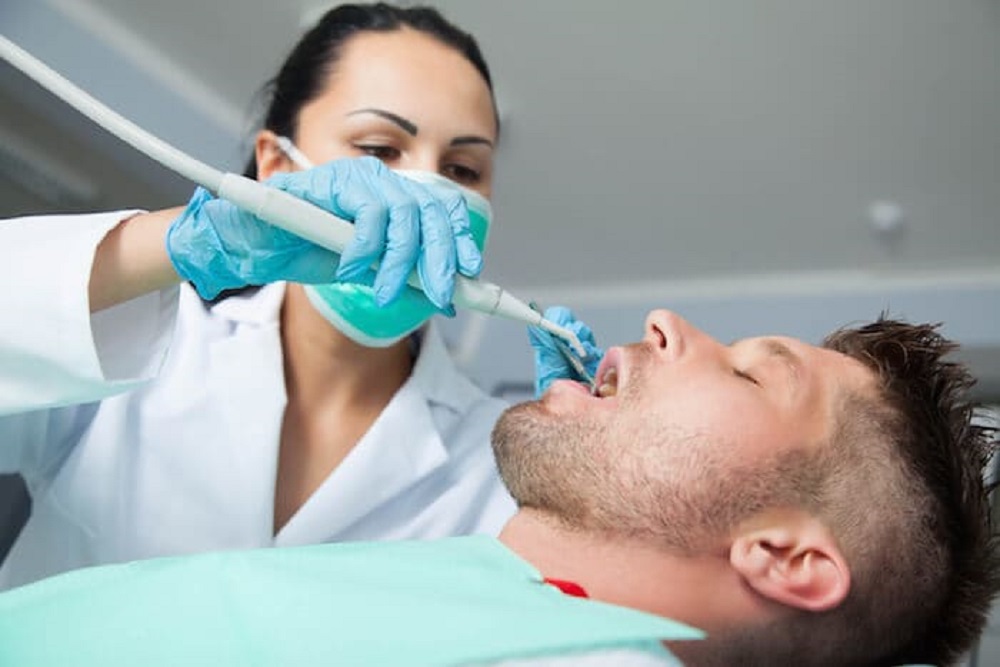Dental care has evolved dramatically over the past 50 years or so. The goals of treatment have shifted focus – in decades past, dental care used to be primarily fixing problems as they arose. Now, there is more emphasis on preventative care through regular checkups.
Regular checkups are the best way to maintain your oral health. They allow you to catch potential issues before they become more significant problems. At Valley Ridge Dental Centre, a typical checkup will consist of thorough cleaning by a dental hygienist and then a check by the dentist. Every so often, the check-up will also include X-rays to ensure that all your teeth are healthy and that there are no cavities.
In the spirit of prevention, most dentists now recommend a check-up every six months for the average, healthy individual. If that can’t be met, dentists say you should have at least one yearly check-up.
However, it should be noted that these recommendations are for healthy individuals without other complicating factors. Many conditions can arise that will warrant dental visits more often than every six months. These higher-risk patients may need to be seen as often as every 3 to 4 months.
If you fall into one of the categories below, you may need to visit a dentist near you more frequently than you previously thought.
Pregnant Women
Pregnant women hear it all the time: the unending litany of what they should and shouldn’t do while pregnant. It includes a stream of doctors’ appointments – both for mom and baby –, but the one that many people tend to forget is dentist appointments.
Oral health can have a massive impact on your overall well-being, and poor oral health has been shown to lead to severe conditions like diabetes. Pregnancy also can do strange and unexpected things to a woman’s body. For some women, it can lead to an increased risk of tooth decay or gum disease.
For these various reasons, many dentists recommend pregnant women visit at least once every trimester. If a woman has other oral health issues, such as cavities or damaged teeth, they may need to visit more often.
Smokers
We all know that smoking causes serious health problems, and we hear a lot about how it can damage the mouth. Aside from causing bad breath and tooth stains, smoking can also cause cancer of the tongue, throat, and soft tissues in the mouth, as well as gum disease. Some forms of gum disease can become so severe as to cause tooth decay and loss. Both heavy and recreational smokers are advised to see their dentist 3-4 times a year.
Along with cigarette smokers, people who use drugs also should see a dentist more frequently – particularly those who smoke their drug of choice. Many users have missing and rotted teeth; once the tooth is compromised, it can be difficult and expensive to replace it with a prosthetic.
Immune Compromised Patients
As mentioned earlier, oral health significantly affects the body’s overall health. For people with a compromised immune system, such as those with cancer or an autoimmune disease, as well as the elderly, the impact of oral health is more keenly felt. What might be a minor issue for a healthy individual can be the difference between life and death for someone with a compromised immune system.
For many of these patients, it is recommended that they see a dentist at least quarterly. There is also a larger emphasis on seeing a dentist as soon as possible should any issues arise.
Patients with Gum Disease
For patients with a history of gum disease – or are currently fighting it – it is recommended that they see their dentist at least 3-4 times a year.
Gum disease may seem a mild, minor nuisance in its beginning stages, but it can quickly progress to something much more severe. Aside from bleeding, bad breath, swelling, and discomfort, gum disease can damage your teeth. Left untreated, this can result in tooth decay – painful in and of itself – and eventually lead to tooth loss.
Anyone can get gum disease, even if they take good care of their teeth at home. If you’re having any of the before-mentioned symptoms, do not hesitate to call your dentist. The disease can progress quickly, and if you wait for your next regularly scheduled visit, it may be too late.
Patients with a History of Cavities
Some people are more prone to cavities than others – usually due to environmental, dietary, and genetic factors.
Good oral hygiene at home isn’t enough for these people to prevent cavities. In these cases, the cavities can develop and progress quickly, some even in the six months between the regularly scheduled visits.
People with a personal or family history of cavities should consider seeing their dentist more than twice a year. They should not hesitate to call if they suspect they have another cavity. It is recommended that they talk to their dentist about how often they should be coming in.
Patients Undergoing Long-Term Dental or Orthodontic Treatments
People undergoing long-term dental or orthodontic treatments must see their dentist as often as prescribed. Missing these scheduled appointments can push your treatment back, prolong it, or even cause it to experience a setback, as with artificial whitening or implants.
Regarding braces, most know they must see their orthodontist every few weeks, but many overlook dental cleanings. Braces can make it hard to clean your teeth at home properly; no matter how hard you try, some food will always be stuck somewhere. It is recommended that those with braces see their dentist for a cleaning every few months at a minimum.
Time for Your Routine Check-Up?
If it’s time for you to see a dentist, don’t hesitate to contact us at Valley Ridge Dental Centre today! We’ll schedule you for a visit to get your teeth cleaned and ensure your overall dental health. Contact our dental clinic in NW Calgary today.

